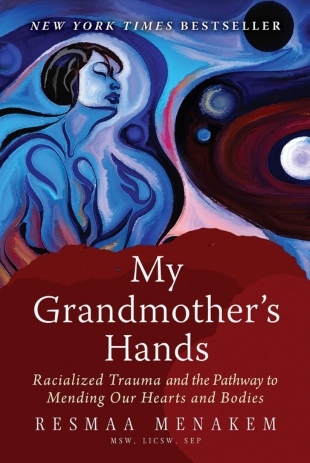"As every therapist will tell you, healing involves discomfort — but so does refusing to heal. And, over time, refusing to heal is always more painful.
"In my therapy office, I tell clients there are two kinds of pain: clean pain and dirty pain. Clean pain is pain that mends and can build your capacity for growth. It's the pain you experience when you know, exactly, what you need to say or do; when you really, really don't want to say or do it; and when you do it anyway. It's also the pain you experience when you have no idea what to do; when you're scared or worried about what might happen; and when you step forward into the unknown anyway, with honesty and vulnerability.
"Experiencing clean pain enables us to engage our integrity and tap into our body’s inherent resilience and coherence, in a way that dirty pain does not. Paradoxically, only by walking into our pain or discomfort — experiencing it, moving through it, and metabolizing it — can we grow. It's how the human body works.
"Clean pain hurts like hell. But it enables our bodies to grow through our difficulties, develop nuanced skills, and mend our trauma. In this process, the body metabolizes clean pain. The body can then settle; more room for growth is created in its nervous system; and the self becomes freer and more capable, because it now has access to energy that was previously protected, bound, and constricted. When this happens, people's lives often improve in other ways as well.
"All of this can happen both personally and collectively. In fact, if American bodies are to move beyond the pain and limitation of white-body supremacy, it needs to happen in both realms. Accepting clean pain will allow white Americans to confront their long-time collective disassociation and silence. It will enable African Americans to confront their internalization of defectiveness and self-hate. And it will help public safety professionals in many localities to confront the recent metamorphosis of their role from serving the community to serving as soldiers and prison guards.
"Dirty pain is the pain of avoidance, blame, and denial. When people respond from their most wounded parts, become cruel or violent, or physically or emotionally run away, they experience dirty pain. They also create more of it for themselves and others.
"A key factor in the perpetuation of white-body supremacy is many people's refusal to experience clean pain around the myth of race. Instead, usually out of fear, they choose the dirty pain of silence and avoidance and, and variably, prolong the pain.
"In experiencing this book, you will face some pain. Neither you nor I can know how much, and it may not show up in the place or the manner you expect. Whatever your own background or skin color, as you make your way through these pages, I encourage you to let yourself experience that clean pain in order to let yourself heal. If you do, you may save yourself — and others — a great deal of future suffering."
